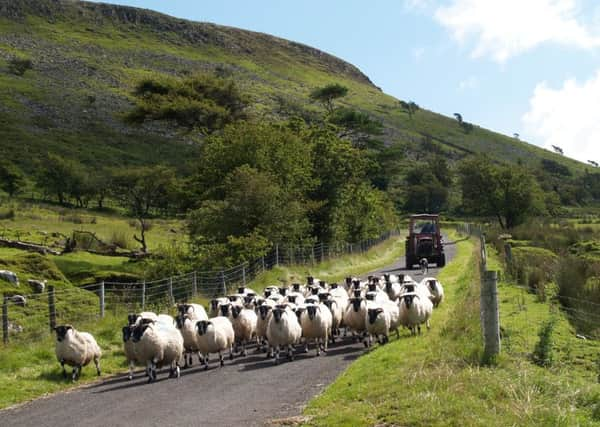Farmers to be helped to diversify and grow


The first event, in the Crossmaglen Community Centre is being run in partnership with the Ring of Gullion Partnership and will take place on Monday, January 28th at 7.30pm.
The second will take place in the Tollymore Outdoor Centre at 7.30pm on Tuesday, January 29th and is again hosted through the Ring of Gullion Partnership.
Advertisement
Hide AdAdvertisement
Hide AdThe final event, taking place at 7.30pm, on Wednesday, January 30th in The Workflow space, 46 High Street, Newtownards, is hosted in association with Strangford Lough and Lecale Area of Outstanding Natural Beauty (AONB) and North Down and Ards Borough Council.
All events are supported by the Woodland Trust and will focus on developing a project which helps farmers to trial new ways of delivering sustainable, improved and diversified farm businesses.
The project focuses on the use of ‘green infrastructure’ and management changes as an essential part of farming production. As part of the project, some farmers will be helped with a farm plan. The purpose of the farm plan is to work in partnership with the farmer to provide him or her with a plan, specific to their individual needs and ideas for future development. If the farmer wishes, they can be provided with assistance in exploring potential funding opportunities, which will facilitate them in the roll out of the plan on their farm.
Newry, Mourne and Down District Council Chairman, Councillor Mark Murnin said: “Farming is an important part of our district’s economy and it is important that we do all we can to help them grow their businesses in the face of changing and challenging circumstances.
Advertisement
Hide AdAdvertisement
Hide Ad“Despite recent uncertainty in the industry, farming is still the mainstay of the rural community forming the bedrock of the rural economy in the area. However, there can be no doubt that farming, especially hill farming, is coming under significant pressure, with increases in costs and decreasing profits.
“I am delighted to be able to help them access advice and assistance which will allow them to become more profitable and, at the same time, farm in a more sustainable way.”
In the last 50 years, increased mechanisation and use of artificial inputs, bought in fodder and changes towards continental breeds have allowed farmers to increase productivity. However increases in the costs of fodder, fuel and fertilizer, have in recent times, lead to declines in overall income. With time and money at a premium, many farmers are now looking for more efficient ways to make farming pay. One such option involves exploring the benefits of green and living infrastructures such as hedges, trees, sward changes and even stock changes.
In addition to increasing costs of production, disease and adverse weather conditions have become a greater issue for farms with prolonged wet and cold winter conditions demonstrating the need for outdoor shelter in the form of hedges and trees to protect stock, fields and farm viability. Trees, for example, as well as providing shelter, also make a contribution in reducing water runoff which can restrict the production of fluke, while species rich swards can increase the growing season and reduce the need for artificial fertiliser.
Advertisement
Hide AdAdvertisement
Hide AdThe Woodland Trust, which is a charity supporting the planting of trees and hedges, knows that it needs to work closely with farmers and help support them in their primary business of food production. The Woodland Trust is focused on supporting communities and using the many benefits that trees provide to help achieve this. Shelter and trees are only part of a bigger picture and, for that reason, the farm survey work will, when required, offer support and signposting towards information on pasture management, stock changes and diversification opportunities and more.